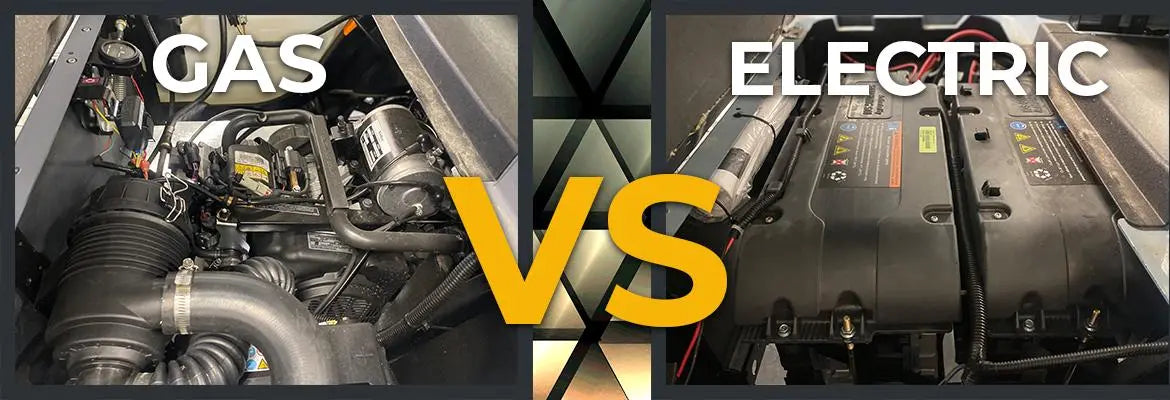Golf carts have evolved beyond their initial use on golf courses and are now a common sight in various settings, from resorts and gated communities to industrial facilities. When choosing a golf cart, one of the most fundamental decisions you'll face is whether to opt for a gas-powered or electric model. In this blog post, we'll delve into the gas vs. electric golf cart debate to help you make an informed decision based on your specific needs and preferences.
Gas-Powered Golf Carts:
Pros:
-
Range and Endurance: Gas-powered golf carts typically have a longer range than their electric counterparts. They can run continuously as long as there's fuel in the tank, making them suitable for extended journeys.
-
Quick Refueling: Refilling a gas-powered golf cart is as simple as visiting a gas station. It takes only a few minutes to refuel, making it a convenient option for those on the go.
-
Power and Torque: Gas engines generally provide more power and torque, making gas golf carts a better choice for tackling hilly terrain or carrying heavy loads.
-
Longevity: Gas engines tend to have a longer lifespan compared to batteries, and they require less maintenance overall.
Cons:
-
Emissions: Gas-powered golf carts produce emissions, contributing to air pollution and requiring periodic exhaust system maintenance.
-
Noise: Gas engines are noisier than electric motors, which can be a concern if you're looking for a quieter ride.
-
Maintenance: Gas carts require more maintenance, including oil changes, air filter replacements, and spark plug checks.
Electric Golf Carts:
Pros:
-
Environmental Friendliness: Electric golf carts are eco-friendly, producing zero emissions during operation.
-
Quiet Operation: Electric motors run silently, offering a peaceful and enjoyable ride without engine noise.
-
Low Operating Costs: Electricity is generally cheaper than gasoline, making electric golf carts more cost-effective to operate in the long run.
-
Simplicity: Electric carts have fewer moving parts, which translates to reduced maintenance requirements and costs.
Cons:
-
Limited Range: Electric golf carts have a limited range per charge, typically around 25-50 miles, depending on the battery and terrain.
-
Charging Time: Charging an electric golf cart can take several hours, making it less convenient for those who require continuous use.
-
Initial Cost: Electric golf carts tend to have a higher upfront purchase price compared to gas models.
-
Battery Replacement: Golf cart batteries have a limited lifespan and can be expensive to replace when they wear out.
Choosing the Right Golf Cart for You:
-
Intended Use: Consider how you plan to use your golf cart. If you need extended range and power for off-road or work applications, a gas-powered cart may be more suitable. For recreational use within a community or resort, an electric cart might suffice.
-
Budget: Evaluate your budget, taking into account both the initial purchase price and long-term operating costs. Electric carts may have a higher upfront cost but tend to be more economical over time.
-
Environmental Concerns: If reducing your carbon footprint is a priority, an electric golf cart aligns better with eco-friendly principles.
-
Charging Infrastructure: Consider the availability of charging infrastructure in your area. If you have easy access to charging stations, the inconvenience of long charging times may be mitigated.



Share:
Powering Your Ride: Understanding Golf Cart Battery Options and Longevity
Are ICON Golf Carts Good Golf Carts?